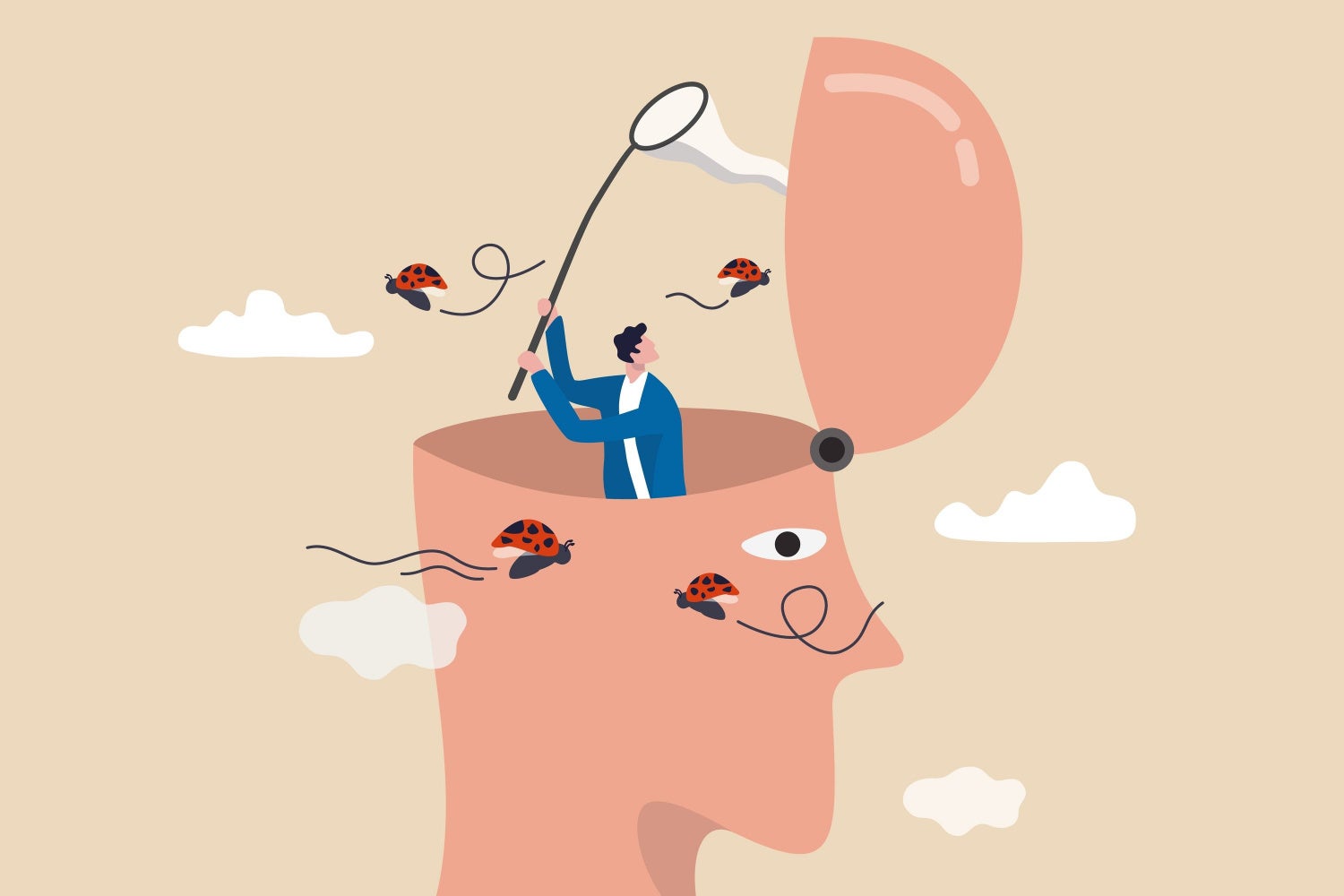Banner artwork by Kitch Bain / Shutterstock.com
Is there a formula for success at work? Are there simple rules that you can follow to increase your chances of getting what you want? Career Path columnist James Bellerjeau thinks the answer is yes. In this series of articles, The ABCs of Work, he shares the formula with you.
Greetings readers and congratulations! Simply by virtue of being here you are already on the path to increasing your odds of success. While luck plays a gigantic role in life, that does not mean you are helpless to control your fate. If you want to think of it this way, the tips we’ll explore are ways to increase your odds that luck will find you.
Today, I explain why having a Zen-like attitude will not only help you find satisfaction but make you more successful in your work.
Last time we explored why orienting yourself around the word Yes drives outperformance in work and life. Today we end the ABCs of Work by recommending you bring a Zen-like attitude to your endeavors.
Zen has a long and impressive pedigree
When I say Zen for our purposes, I mean a state of calm attentiveness. No need to imbue the word with any more meaning than that.
I do love that Zen has a rich, multicultural history: the Japanese pronunciation of a Middle-Chinese word that is a transliteration of the Sanskrit word for meditation.
Meditation has come into the mainstream, perhaps because many people feel stressed by modern life. There are as many ways to meditate as there are people who have tried it. Truly, it is a welcoming practice. The simplest involves paying attention to one’s breath for a moment.
You will also hear people talk about mindfulness, which is close to what I mean by Zen: paying attention to the present moment and not letting your mind wander. You can apply mindfulness in every setting and any activity.

Zen: Paying attention to the present moment and not letting your mind wander.
Artwork by ESOlex / Shutterstock.com
What does a Zen mindset do for me in practical terms?
If calm attentiveness is your goal, two benefits await. When you learn to observe the thoughts running through your mind, it is a small step to recognize that you are not your thoughts. Thoughts come unbidden to your mind, but you can choose what to do in response. This includes not letting anger, fear, or frustration drive your behavior.
In other words, by paying careful attention to your thoughts and feelings, you can step off the stress rollercoaster that we inadvertently find ourselves riding on. You can be calm amidst uncertainty. Calm when others are losing their cool.

The second benefit comes from attentiveness itself. What happens when you pay careful attention to the task you’re doing? You do a better job. Naturally, when you really concentrate your efforts, you perform better than when you’re multitasking and distracted. Simply being able to sit and concentrate is a superpower in today’s attention-fracturing environment.
So mindful attentiveness brings you a more peaceful mind, the recognition that you can choose your response to emotions, and superior performance in your tasks. Impressive return for such a modest investment of your time!
Are there times I should lose my Zen-like calm?
In a word, no. You may choose to show an emotion when the situation requires it, but it should be mindful, that is deliberate. Just because your natural Zen-like state is calm, you do feel emotions. More importantly, your colleagues get angry, frustrated, and worried as well.
It helps a lot when you empathize with colleagues by acknowledging those emotions. Say a new regulation will impose significant burdens on your company. There’s every reason to express frustration and annoyance about the regulation itself. That’s a realistic expression of what everyone’s feeling. You can then lower the tone and turn to productive work.
When you concentrate your efforts, you perform better than when you're multitasking and distracted. Simply being able to sit and concentrate is a superpower in today's attention-fracturing environment.
Similarly, when someone’s made a mistake (including you), it’s normal to be disappointed, perhaps even angry. Know it when you’re feeling these things, decide how much to show, and then rein it in again.
It is the common bonds of human emotion that speak strongest to us across time and space. We understand and appreciate philosophy and poetry across millennia because we recognize the human emotions at play. Being a keen observer of your own emotions allows you to become their master. And then you can let them loose to great effect as needed.
Honorable mentions
Leveraging a single tip to drive work success is a heavy lift, even a tip as important as achieving Zen in your thinking. Our formula will necessarily be incomplete. But the formula has impact, and all the more so because we’ve kept things simple. Here to finish are some honorable mentions to serve as food for thought.
Zag — Helen Keller said, “When one door of happiness closes, another opens, but often we look so long at the closed door that we do not see the one that has been opened for us.” Our laser-like focus on our goals sometimes risks that we miss adjacent opportunities. There are many paths to success if we’re open.
Zealous — Lawyers must be zealous advocates for our client’s interests. Always remember who the client is. For in-house lawyers it is the company itself, not the CEO or the management team. And it is also not us. We like to be right, but the job is not about us. We are there to help the company achieve its goals.
Zeitgeist — Pay attention to your company’s general mood and feeling. Also note the general attitudes and morals of the broader environments your company operates in. This includes your industry, the countries you’re present, and regional concerns. All these will drive your risk assessment. Are employees in one business or region more likely to come under pressure to behave inappropriately? Are competitors slipping on the brass knuckles? Are regulators itching to make an example?
This ends The ABCs of Work (link) series, but you can refer back whenever you need a reminder. Whether an article helps you overcome a tough work topic or keeps you on the path to live a good life, I hope you continue to find inspiration or a helpful tip or two along the way.
Be well.
Disclaimer: The information in any resource in this website should not be construed as legal advice or as a legal opinion on specific facts, and should not be considered representing the views of its authors, its sponsors, and/or ACC. These resources are not intended as a definitive statement on the subject addressed. Rather, they are intended to serve as a tool providing practical guidance and references for the busy in-house practitioner and other readers.




